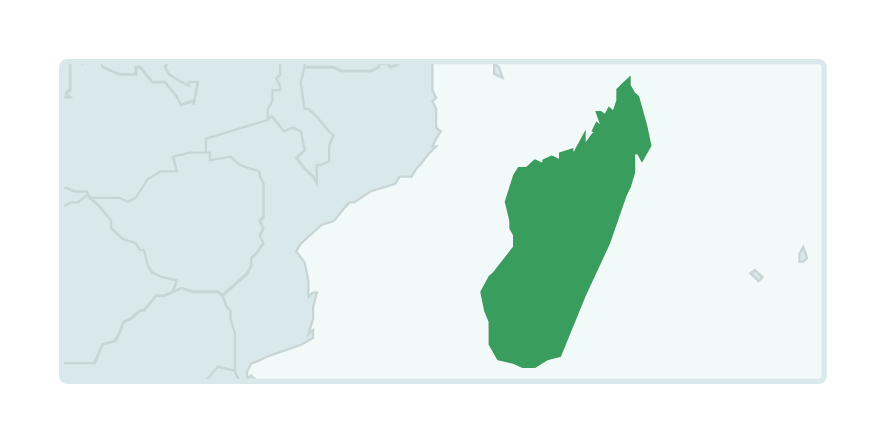To address recurrent droughts and chronic food insecurity in the Androy and Anosy regions in the South of Madagascar, the Afafi Sud project aims to strengthen populations’ agriculture resilience so that they can deal with climate change.
Funded by the European Union, this project is being conducted by GRET, in partnership with Centre technique agro-écologique du Sud (CTAS), Agronomes et Vétérinaires sans frontières (AVSF) and the French agricultural research and cooperation organisation for sustainable development (Cirad), supported by Centre national de recherche appliquée au développement rural à Madagascar (Fofifa / Cenraderu).
GRET is focusing on developing resilient, sustainable, income-generating agroecology for farmers, and raising higher awareness on nutrition, in particular among women and young children.
Agroecological blocks, an innovation by GRET and CTAS
Agroecological blocks are plots with a minimum surface area of 10 hectares, in which perennial plants with a two to three-year lifespan are sown. They contribute to inhabitants’ food sources and provide wood-fuel, a rare resource in this deforested region. They also protect annual crops from dry winds, restore fertility in degraded soils, and increase infiltration of rainwater, which ensures better crop growth. Lastly, they favour feed for livestock.
Agroecological blocks are therefore a development solution that is appropriate to the climate, economic, social and cultural context of this region. Currently, they cover more than 4,400 hectares and more than 4,000 households benefit from them.
Project objectives
- Improve populations’ resilience to deal with climate change.
- Sustainably improve rural households’ food and nutritional security in the Androy and Anosy regions.
Key figures
- In total, 30,000 farming and pastoral households are supported.
- 1,000 households are cultivating agroecological blocks with a minimum surface area of 1,000 hectares.
- 17 seed-growing farmers’ associations are involved (410 members).
- 100 relay farmers are supported.
- 80 shops selling inputs are strengthened.
- 13 livestock farmer groups (300 members) are supported.
- 200 households are accompanied by a Family farming council.
- 8 women’s associations manage Mother and child centres (benefitting 1,800 children, 2,800 women and 1,900 men).
The main project activities
- Conduct of agricultural experimentations in a controlled environment to improve the quality of crop and livestock production.
- Participative planting of a varietal selection of cereal and pulse crops.
- Improvement of goat farming.
- Extension of agroecological blocks growing pigeon peas, local Lima beans and millet in the regions.
- Development of inclusive farmer organisation.
- Nutritional improvement of vulnerable groups via census and awareness-raising campaigns.
- Support for seed production structures and for securing the future of the seed value chain (Quality Declared Seed).
- Implementation of Mother and child centres, and securing of their future.
- Support for community mobilisation.
- Development of income-generating activities, particularly for women.
Expected results
- Local varieties and races are improved and made available to rural populations for increased food security.
- The environment is restored and soils conserved thanks to agroecological blocks.
- Structuring of agricultural and livestock activities makes it possible to generate income and improve living conditions.
- The most vulnerable groups’ nutritional situation is improved via prevention of malnutrition in children under the age of five in Mother and child centres, through awareness-raising on good eating, healthcare and hygiene practices, and the provision of fortified infant flour.
